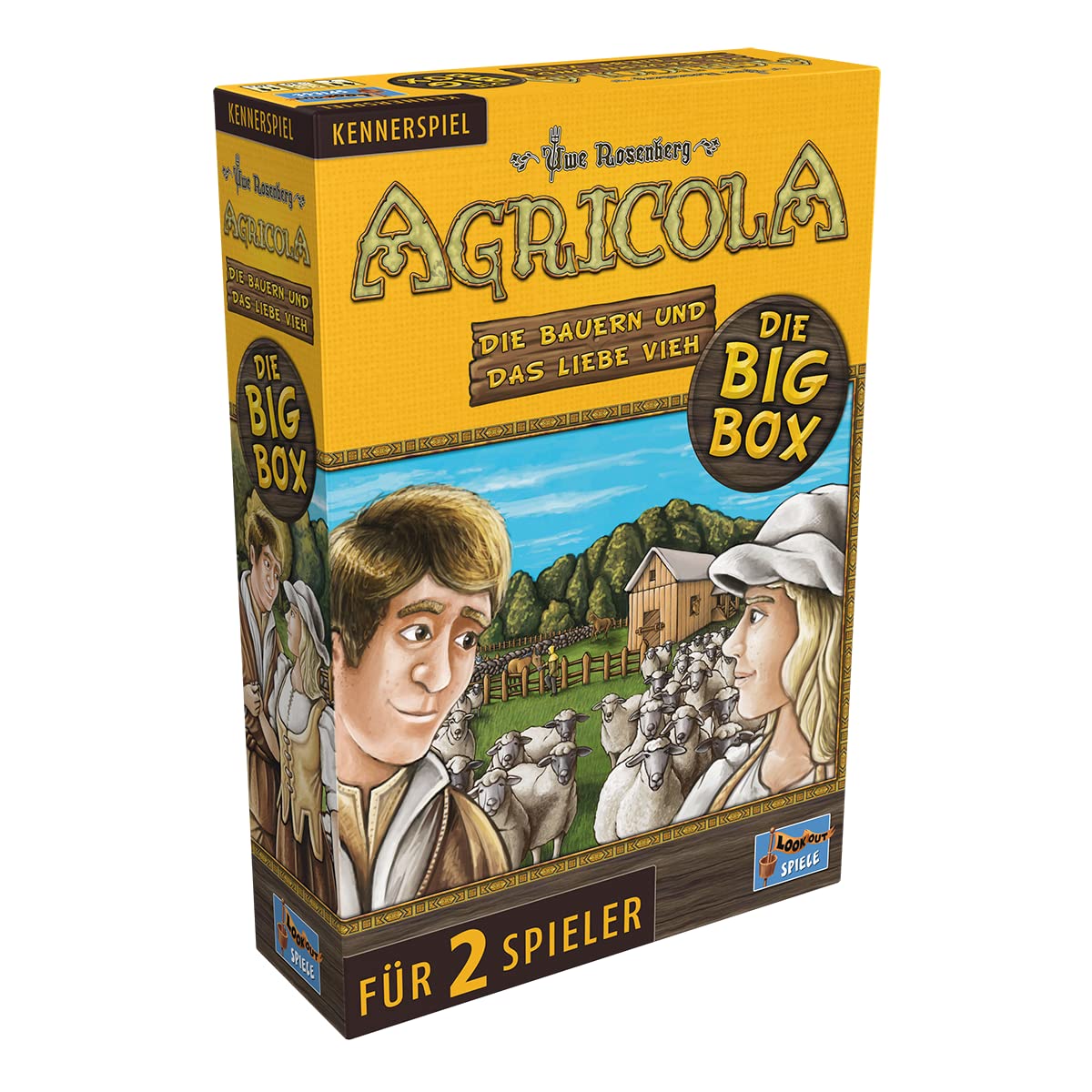Agricola (2007)
Agricola
Agricola is a Euro-style board game created by Uwe Rosenberg. It was first published in 2007 by Lookout Games and later by Z-Man Games. The game is set in the 17th century and players take on the role of farmers who must manage their resources and expand their farms to feed their families.
Why is Agricola Popular?
Agricola is a popular game due to its unique Gameplay Mechanics of Agricola and focus on resource management. It has won many gaming awards, including the Deutschen Spiele Preises Game. It was also the game that ended Puerto Rico’s run of more than five years as the highest-rated game on the board game website BoardGameGeek, staying at the top of the rankings between September 2008 and March 2010. As of September 2021, Agricola is ranked 34th among all board games on BoardGameGeek.
Game Components of Agricola
How To Setup Agricola
Setting up Agricola involves preparing the various boards and components. Each player receives a personal farm board with two initial rooms reserved for their starting dwelling. The game includes three main action boards that display possible actions, and a fourth board for major improvement cards. Players also receive family members, stables, and fences. The game requires a large table to accommodate all the boards and components. Players must be able to access their farm boards and the action boards easily, with additional space for storage and resource management.
Gameplay Mechanics and Game Objective
Player Experience
Playing Agricola is a dynamic and challenging experience. The game demands strategic planning and efficient action management, as players must balance feeding their family, expanding their farm, and optimizing their resource use. The game’s tension increases as the harvest cycles shorten, requiring players to be more efficient and adapt to the actions of their opponents. The visual aspect of the game, where players see their farm grow and change, adds to the immersive experience.
Pros
Cons
Personal Thoughts on Agricola
Agricola is a game tailored for advanced players who enjoy deep strategy and complex gameplay. It is ideal for those who appreciate worker placement mechanics and are willing to invest time in learning and mastering the game. The game’s ability to punish inefficiency while rewarding diversified and efficient strategies makes it a classic in the board game community. However, it may not be the best choice for casual gamers or those looking for a quick, simple game.
We are supported by our audience. When you purchase through links on our site, we may earn an affiliate commission, at no extra cost for you. Learn more.

